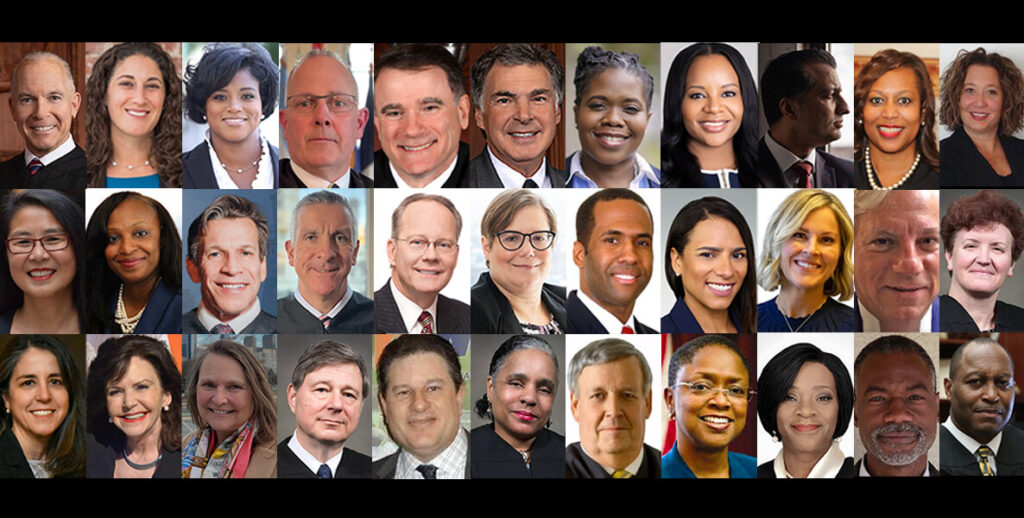More than two dozen judges and would-be judges ran (and re-ran) to fill benches across our city and state on November 7, 2023. State-level Supreme Court determine Pennsylvania-wide policies and could likely influence PA women’s reproductive rights (including abortion), redistricting (changing who can vote for whom, related to gerrymandering) and gun control, an issue near and dear to thousands of gun violence-impacted Philadelphians.
What PA had to say about that: The PA Supreme Court will look even less like the U.S. Supreme Court.
On the city level, judges vied for spots on the Court of Common Pleas (significant criminal and civil cases, including child custody and juvenile justice) and Philadelphia Municipal Court (where most citizens encounter the judicial system, handles eviction proceedings, small claims and debts up to $12,000).
What Philly had to say: Everyone who sat on a bench … stayed there.
STATE SUPREME COURT
STATE SUPERIOR COURT
COMMONWEALTH COURT
PHILADELPHIA COURT OF COMMON PLEAS
PHILADELPHIA MUNICIPAL COURT
STATE SUPREME COURT
On November 7, 2023, PA residents voted to fill the open state Supreme Court following the death last year of Chief Justice Max Baer with Daniel McCaffery. The election will not change partisan control of the Court: Democrats will now hold a 5-2 majority— but it could lay the foundation for an eventual change of partisan power.
In 2018, the Pennsylvania Supreme Court created a new map for congressional districts that drastically changed our congressional partisan makeup. In 2020, the justices upheld Pennsylvania’s law that allows no-excuse mail-in voting. This year, the seven-judge body is weighing whether to overturn a law barring Medicaid from covering abortions — and theirs could be the last word on whether abortions remain legal at all in the state.

